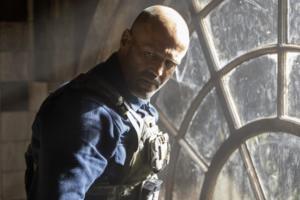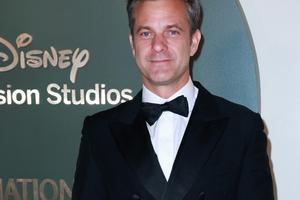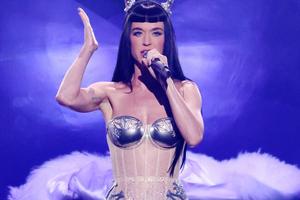Entertainment
/ArcaMax

Meet the budding indie-pop singer who moved to Minneapolis after gaining stardom
MINNEAPOLIS — It’s only a coincidence Samia moved to Minnesota and then issued a hit single about cows. But it’s one of many ways the rising indie-pop star seems to be fitting right in here.
“It’s my favorite place I’ve ever lived,” the new Minneapolis resident cheerfully declared.
Samia’s arrival in the Twin Cities music scene...Read more

Cillian Murphy will be a 'very dominant element' in third 28 Years Later movie, Danny Boyle teases
28 Years Later director Danny Boyle has teased Cillian Murphy will be a "very dominant element" in the third film.
While the 49-year-old actor won't be reprising his 28 Days Later protagonist Jim in the upcoming horror flick, Murphy will appear in its 2026 sequel 28 Years Later: The Bone Temple, and now Boyle has revealed Jim will have a much ...Read more

Scream 7 star Mason Gooding added to Kevin Hart's Netflix comedy 72 Hours
Mason Gooding has been cast in Kevin Hart's comedy flick 72 Hours.
The 28-year-old actor - who has played Ghostface in the Scream franchise since the 2022 eponymous flick - is attached to play the groom in the upcoming Netflix bachelor party film.
Gooding will be joined by Saturday Night Live's Marcello Hernandez, who will be portraying the ...Read more

Amanda Seyfried: Paramount owes me for Mean Girls merch
Amanda Seyfried believes Paramount owe her money for Mean Girls merchandise.
The 39-year-old actress - who played Karen Smith in the 2004 movie - loves the enduring popularity of the teen comedy but admitted she feels "a little resentful" because her fact appears on so many T-shirts and she doesn't get any royalties for the use of her likeness....Read more

Taylor Swift obtains temporary retraining order
Taylor Swift has obtained a temporary restraining order against a man who allegedly claimed he had a child with her.
The Cruel Summer singer declared she had been left fearing for the safety of herself and her loved ones after Brian Jason Wagner of Colorado allegedly visited her Los Angeles home multiple times over the last year and made a ...Read more

Nikki Garcia's real life divorce was referenced in her WWE comeback
Liv Morgan mocked Nikki Garcia's divorce from Artem Chigvintsev during her WWE return.
The 41-year-old WWE Hall of Famer - who is known in the wrestling world as Nikki Bella - made her comeback on last night's (09.06.25) episode of 'Monday Night Raw' on Netflix, and she had an in-character confrontation with the 31-year-old Women's Tag Team ...Read more

Orlando Bloom undergoes 10k treatment to remove toxic chemicals
Orlando Bloom has undergone a £10k treatment to remove toxic chemicals from his blood.
The 48-year-old actor shared a photo of himself at Clarify Clinic on Monday (09.06.25) where he underwent the two-hour procedure, which can reduce inflammation by removing microplastics, chemicals and toxins from your blood.
He wrote alongside the Instagram...Read more

List of DVD release dates for June 3 and beyond
Following is a partial schedule of coming movies on DVD. Release dates are subject to change:
JUNE
10: A Working Man
10: Drop
10: The Friend
10: The Wedding Banquet
10: In the Lost Lands
10: Borderline
10: 11 Rebels
10: Dexter: Original Sin
10: Gunslingers
10: Love's Second Act
10: Trail of Vengeance
10: The Wiz
17: Broke
17: Call...Read more

Grammy winner's rendition of 'Rhapsody in Blue' puts his banjo front and center with symphony
ATLANTA — The opening notes of George Gershwin’s “Rhapsody in Blue” are quintessentially cinematic. The lilt of a seductive clarinet begins a recognizable birdsong. A brassy, deep trombone responds. The two banter in musical conversation as the sound builds with French horns, then violins and more brass. The orchestra falls quiet for a ...Read more

Here are the music festivals coming to Southern California in 2025
ANAHEIM, Calif. — As the dust settles from the springtime festival season, which included the Coachella Valley Music Festival among others, it’s clear the festival season in Southern California has been nothing short of spectacular — and sometimes wild.
From surprise guest appearances that sent social media into a frenzy, to sets that had...Read more

Conner Smith knocks down pedestrian in fatal accident
Conner Smith was involved in a fatal accident on Sunday (08.06.25).
The 24-year-old country singer is at the centre of an investigation by police in Nashville after his pickup truck struck Dorothy Dobbins, 77, who appeared to be walking inside a marked crosswalk at the time.
She was taken to Vanderbilt University Medical Center but tragically ...Read more

Joshua Jackson 'ideally' wants 'exactly equal' contact time with daughter
Joshua Jackson "ideally" wants his daughter's time to be split "exactly equally" between himself and Jodie Turner-Smith.
The former Dawson's Creek star has filed a motion asking the court to intervene in a dispute over where four-year-old Juno will go to school, and as part of his submission, an emotional note he had written to his former ...Read more

Jason Isaacs supports Tom Felton for Harry Potter return on Broadway
Jason Isaacs has already booked his tickets to see Tom Felton in Harry Potter and the Cursed Child.
The 62-year-old actor played Lucius Malfoy - the father of Tom's character Draco - in the Harry Potter movie franchise and he's delighted his former on-screen son will be reprising the role in the Broadway show.
He wrote on X: "Saw you ...Read more

Aimee Lou Wood and Patrick Schwarzenegger reveal what they buy with big acting paydays
Aimee Lou Wood spends lots of money on "cute things that are just quite pointless".
The White Lotus actress has opened up about her love for "silly, novelty household" items, and admitted she splurges more of her big paydays on knick-knacks than things she actually needs.
Speaking to PEOPLE magazine for a new campaign with Venmo, she said: "It...Read more

BTS' RM and V tease K-pop boy band's return after being discharged from South Korean military
BTS' RM and V have been discharged from the South Korean military and teased the K-pop group's return.
Both stars were enlisted for mandatory service on December 11, 2023, and completed their stint on Tuesday (10.06.25).
The pair were greeted by fans at the military base and even saluted the crowd, while they teased a "really cool performance"...Read more

Sam Asghari insists he had to 'work harder' as an actor because of Britney Spears marriage
Sam Asghari has insisted he had to "work harder to prove himself" after marrying Britney Spears.
The 31-year-old model and actor met his ex on the set of her 'Slumber Party' music video in 2016, and they tied the knot six years later, before separating in August 2023 and finalising their divorce in May 2024.
Speaking to 'Page Six Radio', he ...Read more

Katy Perry shocked by stage invader in the middle of Sydney gig
Katy Perry was shocked as a fan jumped on stage and grabbed her mid-concert.
The 40-year-old star was singing her 2008 hit 'Hot N Cold' during a gig in Sydney, Australia on Monday (09.06.25) when a man crashed the stage and put his arm around her.
As seen in a video shared by fans on X, Katy quickly moved out of his reach as he kept jumping ...Read more

Billy Bob Thornton: I'm not really a part of Hollywood
Billy Bob Thornton doesn't consider himself to be part of Hollywood.
The 69-year-old actor has enjoyed huge success in the movie business, starring in films such as 'A Simple Plan', 'Armageddon' and 'Friday Night Lights' - but he tries to distance himself from the Hollywood scene.
He told People: "I don't talk about politics and stuff with ...Read more

Kyra Sedgwick recalls shooting 'emotional' scene with Kevin Bacon
Kyra Sedgwick felt "emotional" while shooting a break-up scene with Kevin Bacon for The Best You Can.
The loved-up couple - who have been married for 36 years - star in the new rom-com movie, and Kyra admits that one scene proved to be particularly difficult to shoot.
Kyra, 59, said at the Tribeca Festival in New York: "There was a moment in ...Read more

Scooter Braun feels 'proud' of Justin Bieber's success
Scooter Braun feels "very proud" of what he achieved with Justin Bieber.
The 43-year-old record executive discovered the pop star back in 2008 and played an instrumental role in Justin's success, before they ended their professional relationship in 2023.
Speaking about his relationship with Justin and his family, Scooter said on 'The Diary of ...Read more











